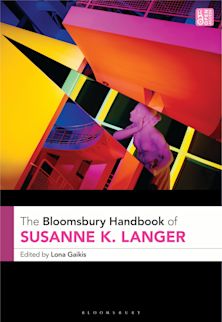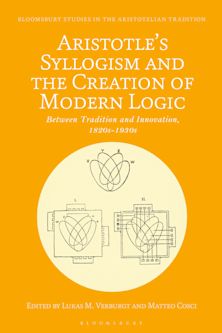- Home
- ACADEMIC
- Philosophy
- Philosophy of Mathematics and Logic
- The Necessities Underlying Reality
The Necessities Underlying Reality
Connecting Philosophy of Mathematics, Ethics and Probability
- Open Access
The Necessities Underlying Reality
Connecting Philosophy of Mathematics, Ethics and Probability
- Open Access
Payment for this pre-order will be taken when the item becomes available
- Delivery and returns info
-
Free CA delivery on orders $40 or over
You must sign in to add this item to your wishlist. Please sign in or create an account
Description
This open access book covers four decades of work by the leading Australian philosopher, mathematician and historian of ideas, James Franklin.
These interlinking essays are connected by a core theme: the necessary structures in reality that allow certain knowledge of absolute truths. Franklin's Aristotelian realist philosophy of mathematics shows how mathematical truths are directly about physical reality, and at the same time certainly and provably true. Ranging from mathematics to evidence evaluation to ethics, his philosophy of probability sees the relation of evidence to hypothesis, such as in science and law, as purely logical, hence necessary.
Across ethics and the philosophy of religion, the theme of necessity is repeated: basic ethical truths (such as the worth of persons and the wrongness of murder) are shown to have the same certainty as mathematics. Focus on the history of ideas connects the philosophical work in the present with the medieval scholastic tradition, which defended similar necessities but is now neglected.
Here is an up-to-date introduction to Franklin's overall perspective. Recalling Western philosophy to its roots, it reveals the way absolute necessities are discoverable across the abstract fields of mathematics, logical evidence and ethics.
The ebook editions of this book are available open access under a CC BY-NC-ND 4.0 licence on bloomsburycollections.com.
Table of Contents
2. Aristotelian Realist Philosophy of Mathematics
3 Logical Probability and the Relation of Evidence to Hypothesis
4. Great Themes of Mathematics: Discrete/Continuous and Local/Global
5. Philosophy of Religion: Leibniz's Solution to the Problem of Evil
6. Ethics: The Parallel with Mathematics
7. Ethics: The Foundation in the Worth of Persons
8 History of Ideas: The Late Scholastics and the Scientific Revolution on Necessities
Bibliography
Index
Product details

| Published | Jan 22 2026 |
|---|---|
| Format | Hardback |
| Edition | 1st |
| Extent | 208 |
| ISBN | 9781350467071 |
| Imprint | Bloomsbury Academic |
| Dimensions | 234 x 156 mm |
| Publisher | Bloomsbury Publishing |
About the contributors
Reviews
-
As Franklin reminds us, it is a failing of mathematics programs that they typically offer no courses on mathematics. They have courses on algebra, calculus, probability and so on, “but no course offering a conspectus of the subject.” In The Necessities Underlying Reality, Franklin goes one better. Not only does he explain how necessities underly mathematics in toto, he suggests that it is these same necessities that are key to understanding a much broader range of phenomena. It is a suggestion that is sure to prompt debate.
Andrew Irvine, Professor of Philosophy, University of British Columbia, Canada
-
Without talking down to his readers, Franklin explains Aristotelian-style realism and its implications for our understanding of everything, from maths through logic to ethics. It's an exhilarating ride - wonderfully illuminating about what really matters - in particular for someone brought up in post-modernism's attitude of suspicion about everything
Bernadette Tobin, Australian Catholic University, Australia
-
We all knew that James Franklin's philosophical rage was broad; now we can see how it all comes together. The Necessities Underlying Reality shows us that Franklin is a systematic philosopher. It argues for a realist theory of modality that spans mathematics, metaphysical modality, and morality. It is philosophically ambitious in Armstrongian vein and written in Franklin's direct, no-nonsense style. As such, it is an important new instalment of Aristotelian realism. For the metaphysician and moral philosopher alike, the reading of this book is itself a necessity
Professor Peter Anstey, Australian Catholic University, Australia


































